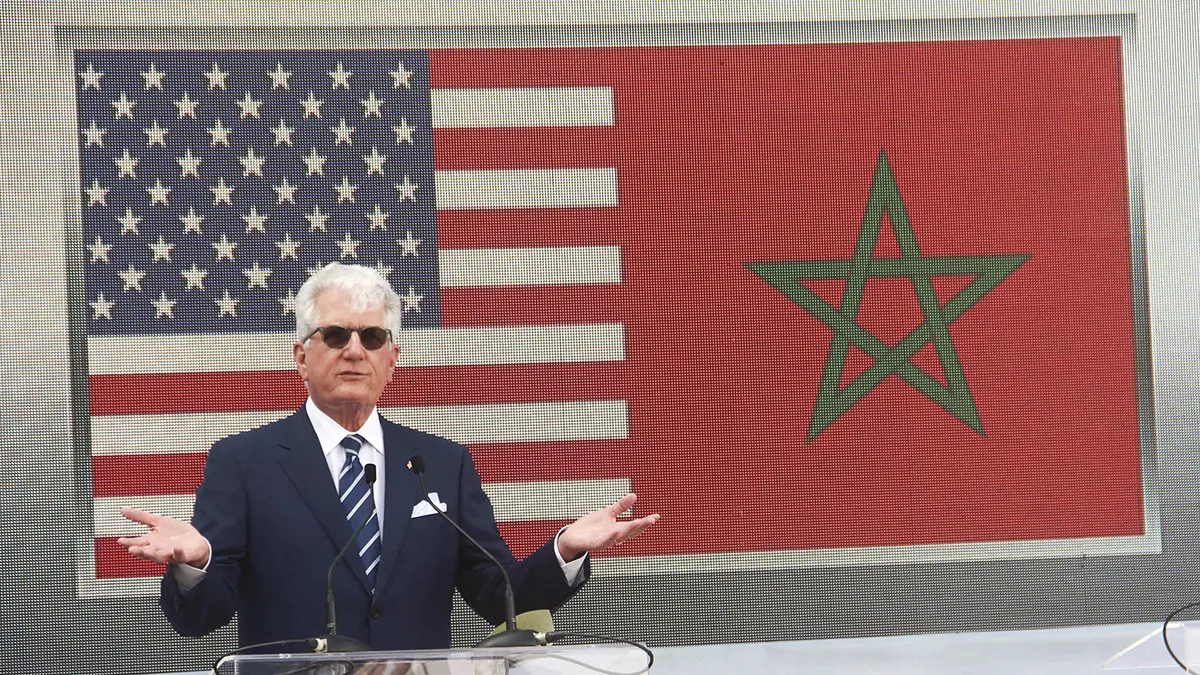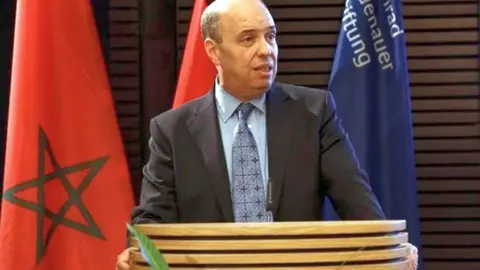Morocco’s Autonomy Plan for the Sahara

- Anchored in International Law, Consistent with UN Parameters
- A Democratic and Accountable Framework
- Delivering Results on the Ground
- A Bulwark Against Regional Instability
- Growing International Momentum
- A Strategic Partner for Europe and the United States
- The Strategic Choice is Clear
For nearly half a century, the Western Sahara conflict has remained frozen, perpetuating uncertainty and feeding regional tensions. Today, however, there is a clear, credible, and actionable path forward — one that serves not only the interests of the region, but also directly aligns with the strategic priorities of Europe, the United States, and the broader international community. That path is the Moroccan autonomy plan.
Originally submitted to the United Nations in 2007, the plan represents a rare synthesis of political realism, international legality, and regional responsibility. It has been repeatedly acknowledged by the UN Security Council — most recently in Resolution 2703 (October 2023) — as a “serious, credible, and realistic” basis for a political solution. Few territorial disputes globally have reached this level of international validation.
Anchored in International Law, Consistent with UN Parameters
Unlike maximalist approaches that have historically blocked progress, the Moroccan proposal offers a pragmatic compromise: substantial political, administrative, and financial autonomy for the Sahara, while maintaining Morocco’s sovereignty and territorial integrity. This model fully aligns with UN principles emphasizing negotiated political solutions, mutual compromise, and respect for state sovereignty — the very foundations of a rules-based international order.
For Western policymakers who champion multilateral solutions and the UN’s central role in conflict resolution, the autonomy plan represents precisely the type of outcome international diplomacy aims to achieve.
A Democratic and Accountable Framework
Importantly, this is not an abstract formula but a fully detailed governance model. The autonomous region would elect its own legislative and executive bodies, govern local affairs, and manage its budget, while Morocco retains control over national defense and foreign policy.
These arrangements are backed by constitutional guarantees enshrined in Morocco’s 2011 Constitution, one of the most advanced constitutional texts in the region. It commits the Moroccan state to upholding human rights, political pluralism, individual liberties, and cultural diversity — all under international monitoring and partnership frameworks that Western democracies routinely support.
Sahrawis already play a meaningful role in national institutions — from Parliament to diplomatic representation — offering a real, functioning model of inclusion rarely seen in comparable disputes worldwide.
Delivering Results on the Ground
While political debates continue, Morocco has not waited for final settlement to invest heavily in the Sahara’s development. Over the past decade, the southern provinces have become a showcase for successful, inclusive economic transformation.
Modern infrastructure — deep-water ports, highways, airports, hospitals, universities, and industrial zones — are fully operational. Economic diversification into renewable energy, fisheries, sustainable agriculture, and logistics has created jobs and opportunity. Human development indicators in education, healthcare, and employment have improved consistently year over year.
In stark contrast to the stagnant refugee camps across the border, the Moroccan Sahara today offers a concrete example of what sustainable, inclusive governance can achieve when paired with serious investment and political will.
A Bulwark Against Regional Instability
Beyond local development, the autonomy plan directly addresses one of Europe and America’s most pressing strategic concerns: regional security.
North Africa and the Sahel have become increasingly vulnerable to terrorist networks, organized crime, separatist insurgencies, and foreign meddling. Allowing the emergence of another fragile or contested entity in this environment would be profoundly destabilizing — not just for Morocco, but for Europe’s southern frontier and global counterterrorism efforts.
By anchoring the Sahara within a stable, sovereign state with functioning institutions and regional legitimacy, Morocco offers a reliable firewall against the spread of instability. The alternative is a dangerous vacuum that extremist groups and malign actors are eager to exploit.
Growing International Momentum
The international diplomatic map reflects this reality. The United States formally recognized Morocco’s sovereignty over the Sahara in 2020 — a position reaffirmed across political transitions. Key European allies — including Spain, Germany, the Netherlands — have all expressed support for Morocco’s autonomy initiative as the most serious and credible way forward.
Meanwhile, more than 30 countries — across Africa, the Arab world, the Caribbean, and Latin America — have opened consulates in Laâyoune and Dakhla, signaling growing global recognition of Moroccan sovereignty.
For countries still hesitating, the window of diplomatic relevance is narrowing. Remaining on the sidelines risks eventual diplomatic isolation as the international consensus continues to consolidate.
A Strategic Partner for Europe and the United States
For European and American policymakers, supporting the autonomy plan is not simply a matter of conflict resolution — it is a strategic investment.
Morocco is an anchor of stability in a volatile region. Its counterterrorism cooperation, intelligence sharing, and military professionalism are recognized and valued by U.S. AFRICOM and NATO partners alike. Its control of key migration routes — managed under close coordination with European authorities — helps secure Europe’s southern border.
At the same time, Morocco is positioning itself as a global leader in renewable energy — solar, wind, green hydrogen — offering long-term energy security at a time when Europe urgently seeks alternatives to Russian energy dependence. Its growing role as a logistics and trade gateway to Sub-Saharan Africa further enhances its value as a regional economic partner.
The Strategic Choice is Clear
The Moroccan autonomy plan offers an exceedingly rare alignment of law, diplomacy, security, and development:
- It aligns with UN principles and international law.
- It provides a negotiated, realistic political solution.
- It guarantees human rights, democracy, and local governance.
- It delivers tangible economic and social benefits.
- It reinforces regional and global security interests.
- And it enjoys growing international support.
For Europe, for the United States, and for all who seek stability in North Africa, endorsing and advancing Morocco’s autonomy plan is not simply the responsible choice — it is the strategic one.


